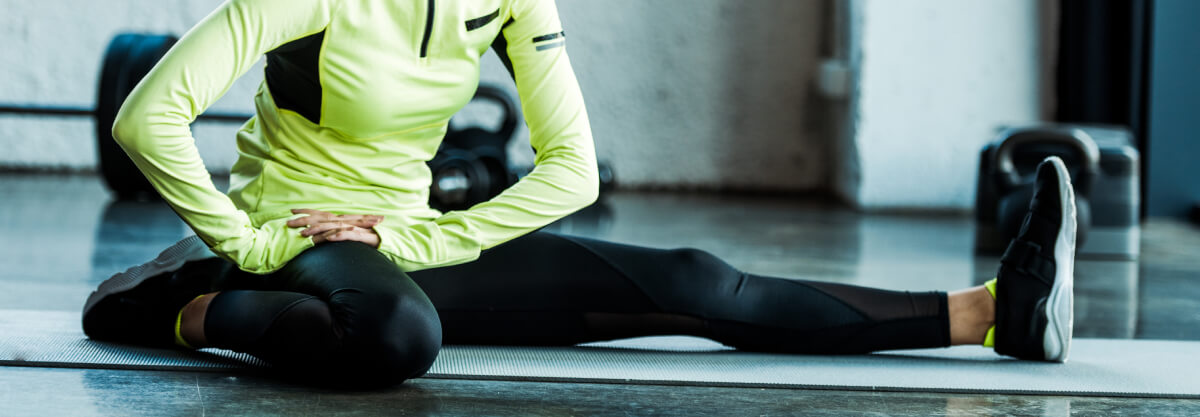
07 Jul, 2025 Preventing Stress Fractures in Female Athletes: Tips for Stronger Bones
What Are Stress Fractures in Female Athletes?
Stress fractures are tiny cracks in the bone caused by repetitive force, often from overuse—like running or jumping. They’re especially common in weight-bearing bones such as the shin (tibia), foot (metatarsals), and hip.
Female athletes are more vulnerable due to biological and hormonal differences, along with training patterns that may involve intense physical activity with limited recovery. These micro-injuries develop over time and can become serious if ignored.
Common symptoms:
- Persistent localized pain that worsens with activity
- Swelling or tenderness
- Pain that improves with rest but returns with movement
Why Female Athletes Are More Prone to Stress Fractures
One of the main reasons female athletes are at higher risk is hormonal imbalance—specifically low estrogen levels. Estrogen plays a key role in maintaining bone density. When levels drop (due to intense training, low calorie intake, or irregular periods), bone strength weakens.
This condition is often part of the Female Athlete Triad or its modern term, RED-S (Relative Energy Deficiency in Sport), which includes:
- Menstrual disturbances (like irregular or absent periods)
- Low energy availability (from under-eating or overtraining)
- Decreased bone density
These factors combine to make bones more fragile and prone to stress injuries.
Essential Nutrition for Strong Bones
Proper nutrition is the foundation of bone health—especially for active females. Inadequate calorie intake, poor meal planning, or disordered eating habits can directly bone strength and recovery.
Key nutrients include:
- Calcium – for bone strength (found in dairy, leafy greens, tofu)
- Vitamin D – helps absorb calcium (sunlight, eggs, fatty fish)
- Protein – aids in muscle and bone repair
- Magnesium & Phosphorus – support bone structure
Training Smart to Prevent Injury
Overtraining without adequate rest is a major cause of stress fractures. While dedication is important, rest and recovery are just as crucial as training itself.
Prevention tips:
- Alternate high-impact and low-impact workouts (e.g., mix running with swimming or cycling)
- Add resistance training to build muscle support
- Use proper form and avoid abrupt increases in intensity or duration
- Ensure at least one rest day per week
Paying attention to fatigue and joint pain is essential—ignoring these signs can lead to long-term injury.
When to Seek Medical Help
Early intervention can prevent minor stress fractures from becoming serious. Female athletes should never ignore lingering pain, especially in the lower limbs.
See a doctor or sports orthopedic specialist if:
- Pain worsens during physical activity
- There’s localized swelling or tenderness
- There are signs of missed periods or low energy levels
An experienced orthopedic doctor can recommend bone scans (DEXA), nutritional evaluation, or even temporary rest periods to protect long-term performance and health.
Why Choose AOSM for Female Athlete Health
AOSM is a trusted destination for female athletes seeking expert care. The center’s multidisciplinary team of orthopedic surgeons, sports medicine doctors, physiotherapists, and nutritionists understands the unique physiological and hormonal challenges faced by active women.
- Expertise in treating female-specific sports injuries
- Holistic programs focused on injury prevention, nutrition, and recovery
- Personalized training and rehabilitation plans
- Access to advanced diagnostic tools and state-of-the-art treatment
Whether you’re a professional athlete or a recreational sports woman, AOSM ensures comprehensive support to help you stay strong, healthy, and active.
Final Thought
Don’t ignore the aches, fatigue, or that nagging pain in your shins or feet. For female athletes, these might not just be signs of overtraining — they could be early warning signals of a stress fracture.
By fueling your body right, training smart, and listening to what your body tells you, you can stay ahead of injuries and keep performing at your best.
Want to stay strong, resilient, and injury-free? Book a consultation at AOSM — the trusted center for sports injury prevention and care for female athletes.
Train stronger. Recover smarter. Perform better — with AOSM.
